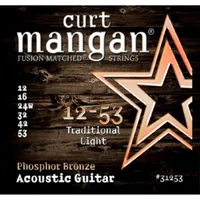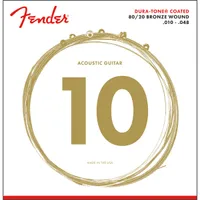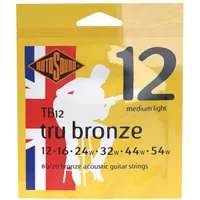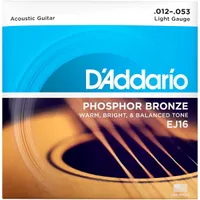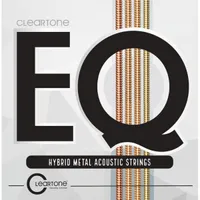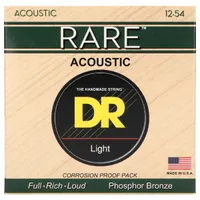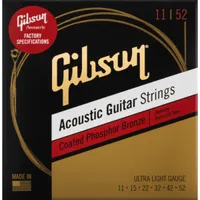Best acoustic guitar strings: my pick of the best strings around
From coated options to custom gauges, these are the best acoustic strings on the market from Elixir, Ernie Ball, D’Addario, and more
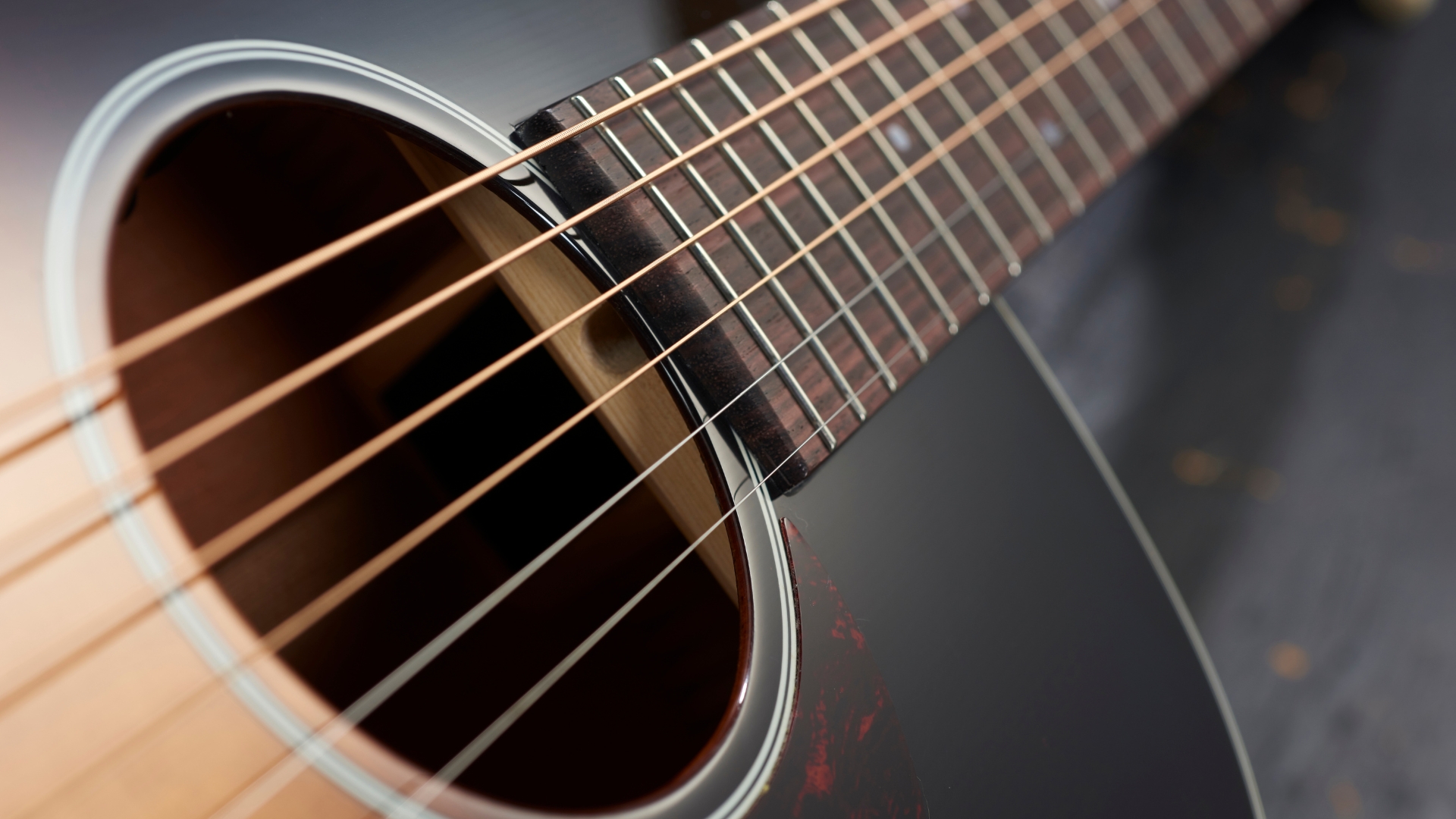
All the latest guitar news, interviews, lessons, reviews, deals and more, direct to your inbox!
You are now subscribed
Your newsletter sign-up was successful
Replacing old, grubby, and dull strings with a fresh set of the best acoustic guitar strings is one of the simple joys in life. I have always felt that new strings are a cost-effective way of helping your guitar not just sound and feel better, but can be a jolt of inspiration for your playing.
Strings may not be the most expensive part of your guitar, but they are certainly one of the most integral. Just like your guitar’s body shape, bracing construction, tonewoods, and even scale length, your acoustic guitar strings play a huge role in how good your instrument sounds and how it feels when you are playing.
Of course, strings are incredibly personal, and what you enjoy will likely be different from my tastes and the best acoustic guitar strings for you will depend on both your playing style and the type of acoustic guitar you own. With that in mind, I have rounded up our top recommendations in a number of categories. From coated options to steel core custom gauges, I have selected a wide berth of options that will appeal to the cornucopia of players out there.
Influencing my choices is the last decade of working in guitar retail, helping people on a daily basis and fielding countless questions about the best acoustic set for them. At Guitar Player, we have spent the last 57 years reviewing, playing, and experimenting with just about every acoustic guitar string brand you can shake your leg at.
If you're new to acoustic guitar strings, I've curated some sections that will help you get your head around things. Alongside a section detailing how to choose the best acoustic strings for you, there's also a selection of FAQs answered by the experts here at Guitar Player, as well as a glossary of key terms to get you up to speed on string lingo.
My top picks
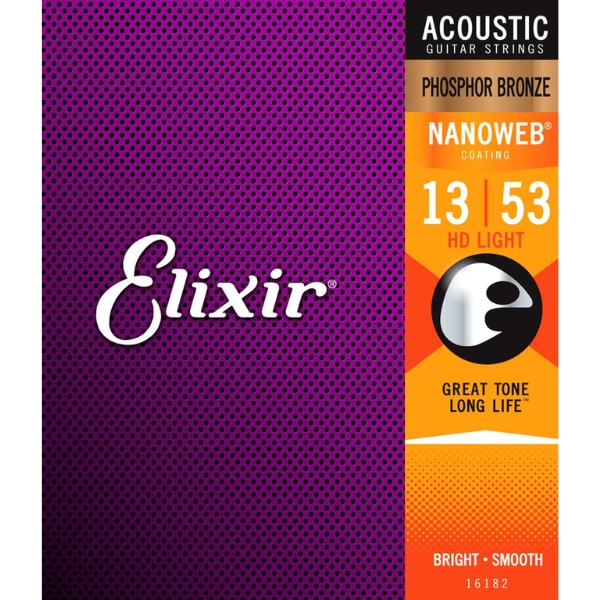
Marrying a long-lasting performance with a balanced, rich tonality, the Elixir 80/20 Bronze with Nanoweb acoustic guitar strings takes my top spot here. If you play regularly, these coated strings make changing after every show redundant thanks to some advanced technology.
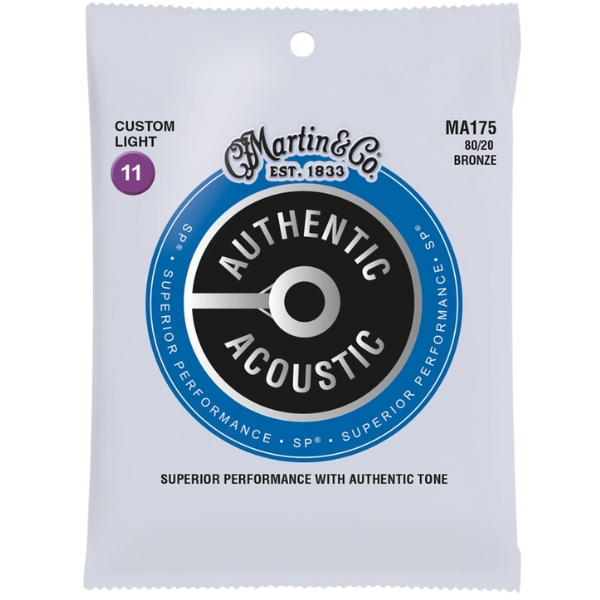
If the feel of coated strings isn’t for you, then you can’t go wrong with Martin Authentic Acoustic 80/20 strings. Coming from one of the biggest names in the acoustic guitar world, these great-sounding strings work brilliantly whether you’re flatpicking or fingerpicking.
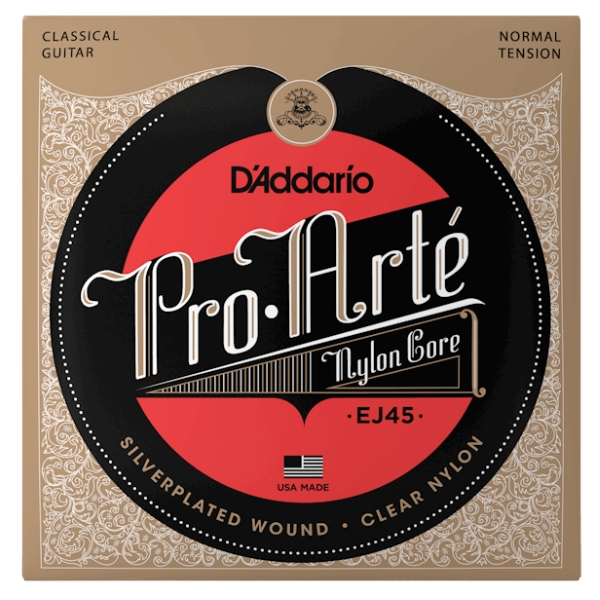
If you're playing classical or flamenco guitar, then our favorite nylon strings are the D’Addario Pro Arté Nylon Core. They come with a variety of tensions to suit your playing style and deliver a warm and balanced tone that makes them ideal for fingerpicking techniques like rasgueado.
Best overall
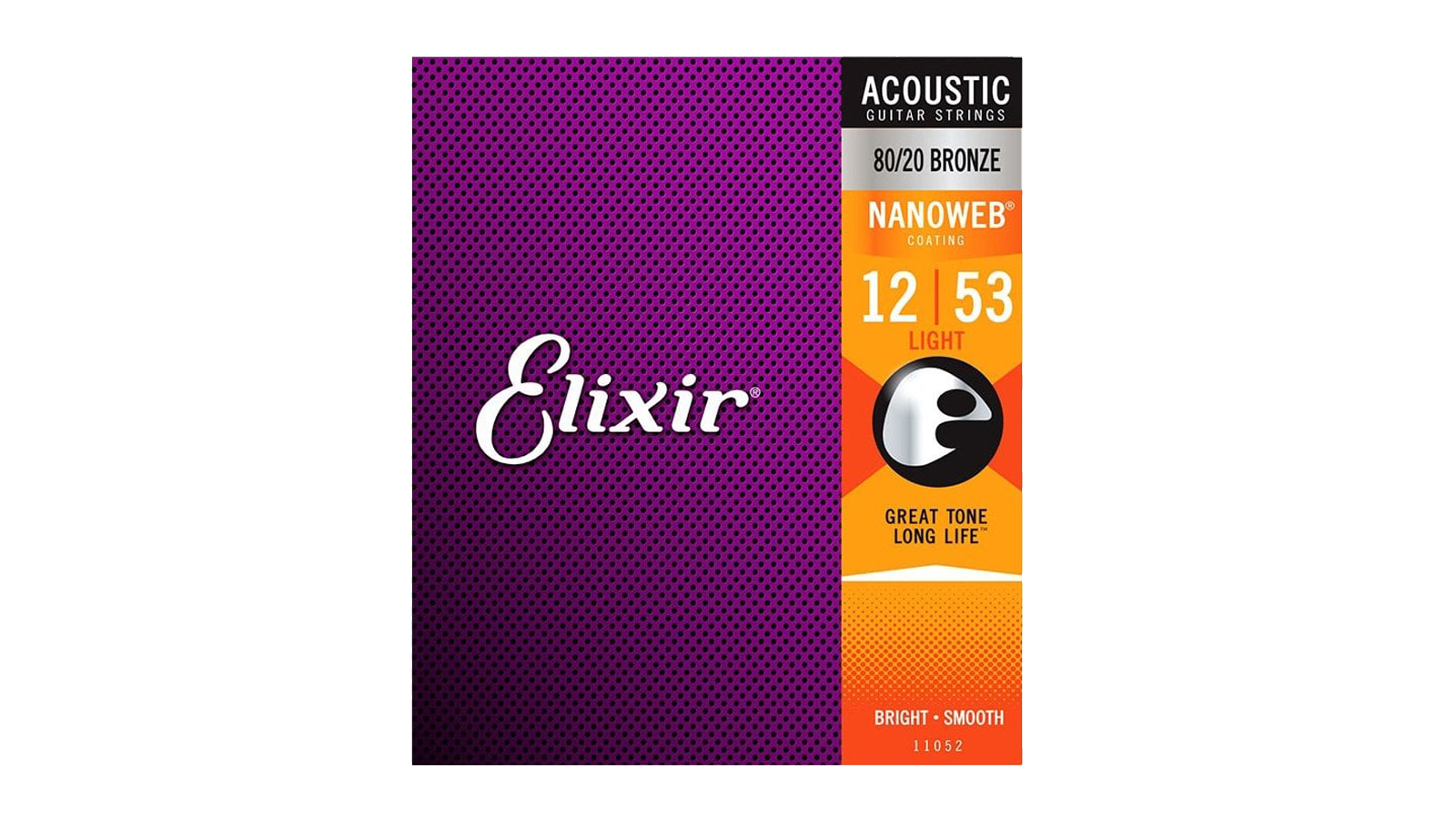
1. Elixir Nanoweb Acoustic
Our expert review:
Specifications
Reasons to buy
Reasons to avoid
✅ Buy if you don’t like changing strings: Nanowebs will last considerably longer than a non-coated string, meaning less frequent string changes.
❌ Avoid if you aren’t a fan of how coated strings feel: Although unnoticeable to many, the coating can put some players off, particularly when it starts to flake off.
Overview: Elixir was the first string brand to introduce the concept of coated strings back in the ’90s. Although many others have followed suit, I still consider the OGs to be producing the best coated strings on the market. The Nanoweb range offers brilliantly long-lasting performance that far exceeds the longevity of uncoated strings available.
Build Quality: Created with a steel core and available in either phosphor or 80/20 bronze windings, Elixir Nanoweb strings are strong, enduring, and, from my experience, will likely give you few breakage problems. The "Nanoweb" part refers to an extremely thin protective plastic layer applied to the string windings. It essentially acts as a barrier and reduces the impact of corrosion caused by acidic sweat and oxygen on metallic strings.
Playability: Elixir Nanowebs sound equally good with fingerpicking and flatpicking, which is why they come as standard on high-end Yamaha guitars. Although these are on the pricier side of things when it comes to acoustic guitar strings, the trade-off is not having to replace them so often, which more than makes up for the extra cost.
Sound: In my experience, tonally speaking, there is little difference between these and a set of uncoated strings, and if anything, the slightly reduced brightness when you first put them on is another advantage. It makes the strings sound as though they’ve been played in for a little bit, softening that super-twangy tone you often get with a brand-new set.
Best budget
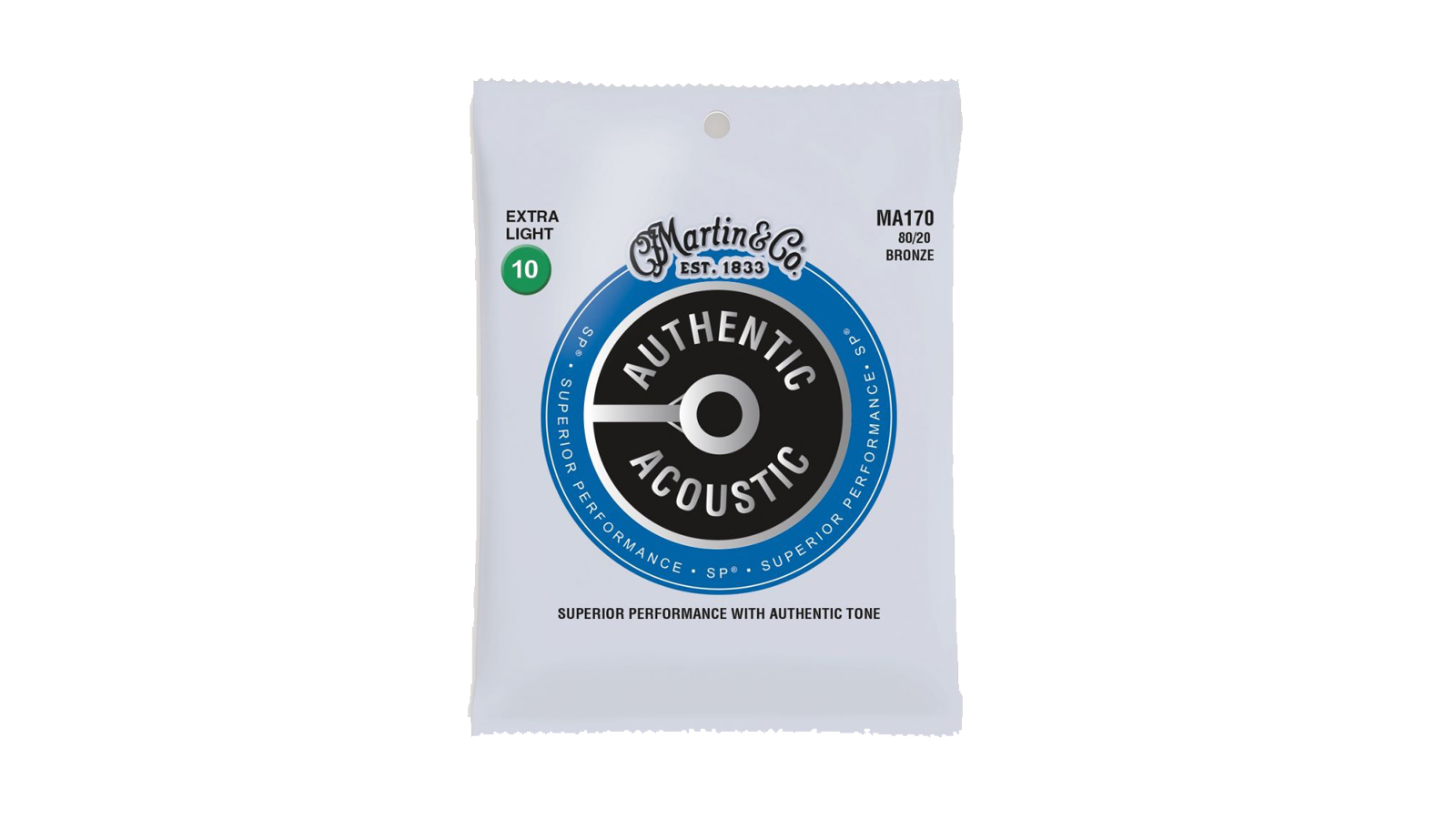
2. Martin Authentic Acoustic 80/20 Strings
Our expert review:
Specifications
Reasons to buy
Reasons to avoid
✅ Buy if you prefer uncoated strings: There is no denying the familiar and comfortable feel that these uncoated strings offer. You will feel right at home.
❌ Avoid if you prefer something more mellow: 80/20 bronze is more lively and bright in nature, so it is worth considering the phosphor bronze set if you already have a bright sounding acoustic.
Overview: When you have been making guitars for 180 years, it is safe to assume you know a thing or two about making strings as well. With Martin Guitars’ Authentic Acoustic strings, you're getting time-tested experience and quality every time you restring your acoustic.
Build Quality: The impeccable standards with which Martin builds its instruments and accessories apply here, too. You will find these strings withstand a punishing amount of playing, surviving even the harshest pick attacks with aplomb.
Playability: In terms of playability, Martin Authentic Acoustic strings feel like a comfortable pair of shoes. If you have been playing uncoated strings from the beginning, you will feel right at home. Their response is upfront and lively, and since there is no coating between you and the strings, the playing experience feels, for lack of a better word, truly authentic.
Sound: These are uncoated 80/20 bronze strings, so they have a brightness of tone that will be familiar to any acoustic guitar player. I found them to be balanced across the frequency spectrum, delivering a great response in every register, alongside excellent tuning stability.
Best nylon strings
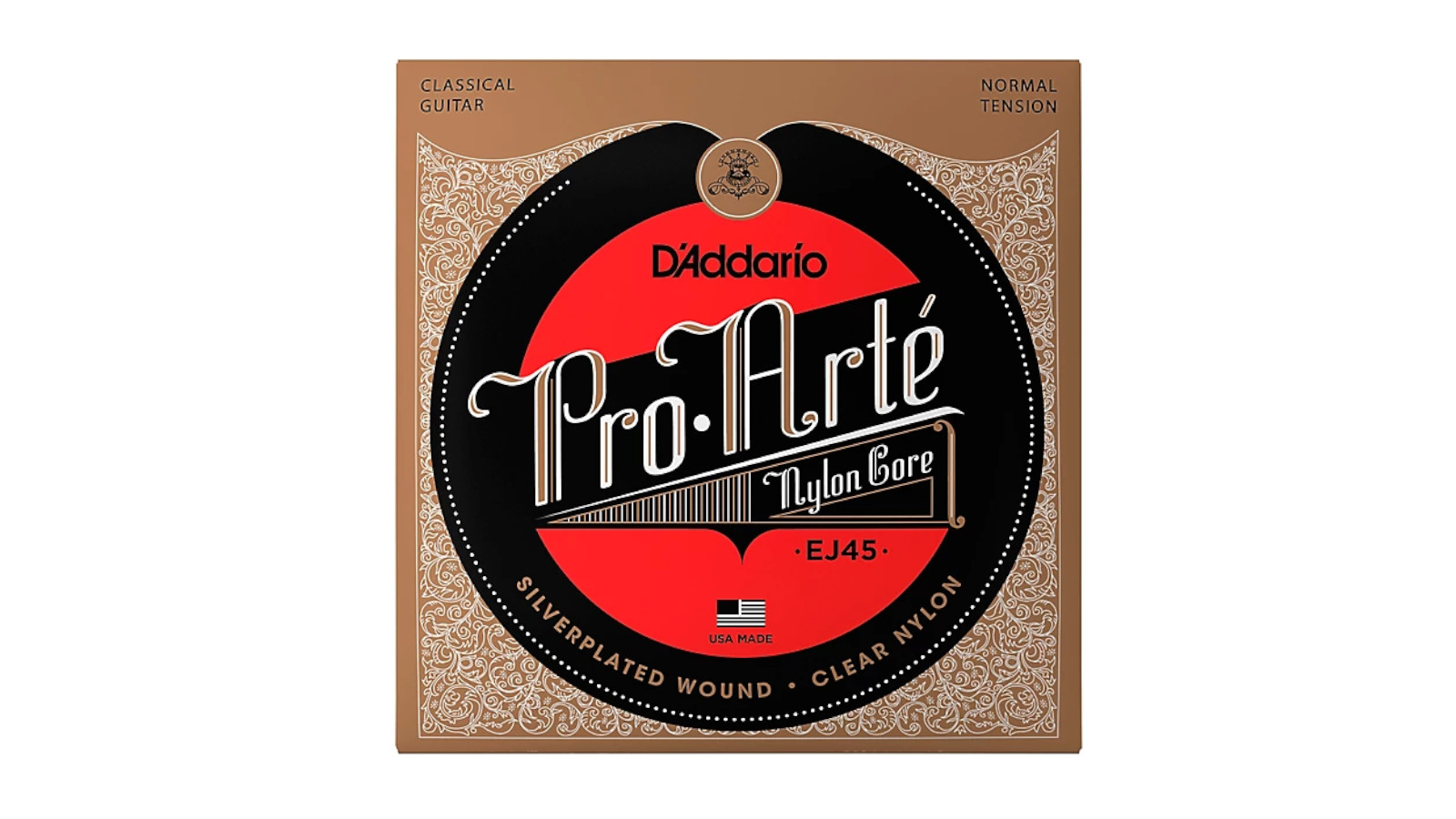
3. D’Addario Pro Arté Nylon Core
Our expert review:
Specifications
Reasons to buy
Reasons to avoid
✅ Buy if you want tone consistency: In the best way, the Pro Arté strings are very predictable. You know exactly what you are going to get each time you pick up your guitar.
❌ Avoid if you appreciate the ease of ball ends: You will have to tie these strings, as there are no ball-end Pro Artés available.
Overview: Of course, D’Addario can create a fantastic set of steel strings, but it has many more feathers in its cap. From violin strings to banjo strings, D’Addario’s catalog is expansive. However, we’re focused on guitar, and it also makes an excellent set for classical players – the Pro Arté Nylon Cores are the best of the bunch.
Build Quality: With a multifilament nylon core and silver-plated copper winding around the bass strings, these strings are very practical. They are incredibly durable, so you won’t need to change them very often, and for an uncoated string, I have found that it takes a long time for them to start corroding.
Although some players may prefer the convenience of ball-end nylon strings, the Pro Arté set is certainly among the best nylon acoustic strings currently on the market. Plus, for the price, there’s not a lot to argue with.
Playability: In terms of feel, the Pro Arté strings are smooth under the fingers and comfortable for long playing sessions. The trebles have a nice elasticity without feeling floppy, while the basses maintain just enough tension to stay articulate. Whether you are practicing etudes or learning flamenco classifications, these strings offer a consistent and dependable feel that makes them a solid choice for classical players at any level.
Sound: D’Addario offers the Pro Arté strings in multiple tensions, from normal tension for lower action to high tension for extra volume. The Pro Arté strings offer a responsive and resonant tone, which is always very consistent. You know exactly what you are going to get each time you pick up your guitar. This is by no means a negative; in fact, it is a massive appeal if you are recording classical.
Best for beginners
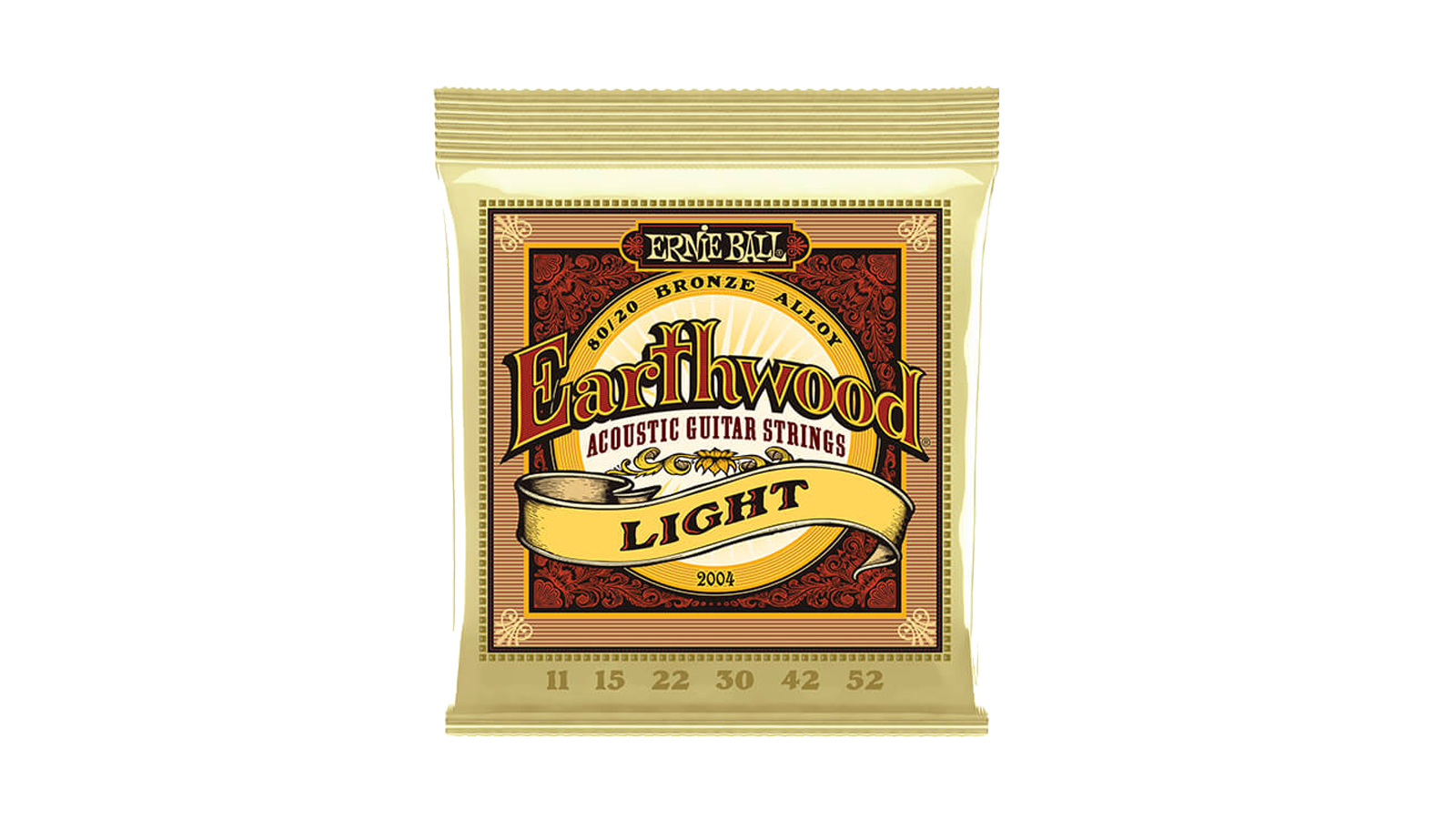
4. Ernie Ball Earthwood
Our expert review:
Specifications
Reasons to buy
Reasons to avoid
✅ Buy if this is your first time buying new acoustic strings: Restringing is a learning curve, and we have selected the best strings so that you don’t fall at the first hurdle.
❌ Avoid if you need something longer-lasting: The uncoated nature of these strings means corrosion will happen more quickly than with a coated set of strings.
Overview: Although Ernie Ball is primarily known for its ‘Slinky’ electric guitar string range, the company also makes excellent strings for acoustic guitar players. Combining decades of experience manufacturing strings with some of the best materials available, these are a great choice for any kind of guitarist.
Build Quality: Ernie Ball has utilized a tin-plated steel core for the Earthwood range, and depending on your preference, you can opt for either 80/20 or phosphor bronze windings. As expected at this price point, these strings are uncoated, so they will corrode faster than coated alternatives.
Playability: Although the Earthwoods aren’t marketed as balanced-tension strings, every time I have played a set, they have always felt well-balanced from top to bottom. Perhaps due to my familiarity with the Slinky range, the Earthwoods feel familiar and comfortable, with little to complain about in terms of playability.
Sound: Tonally, they offer a distinctly warmer character than some of the others on this list. They are not overly bright when first installed, unlike many acoustic guitar strings, which makes them great for regularly gigging guitarists, as you don’t need to spend time breaking them in.
The voicing is definitely more skewed toward flatpickers and strummers, though fingerpickers might find the mellow tone lacks some of the articulation and sparkle needed for their style.
Best for ensembles
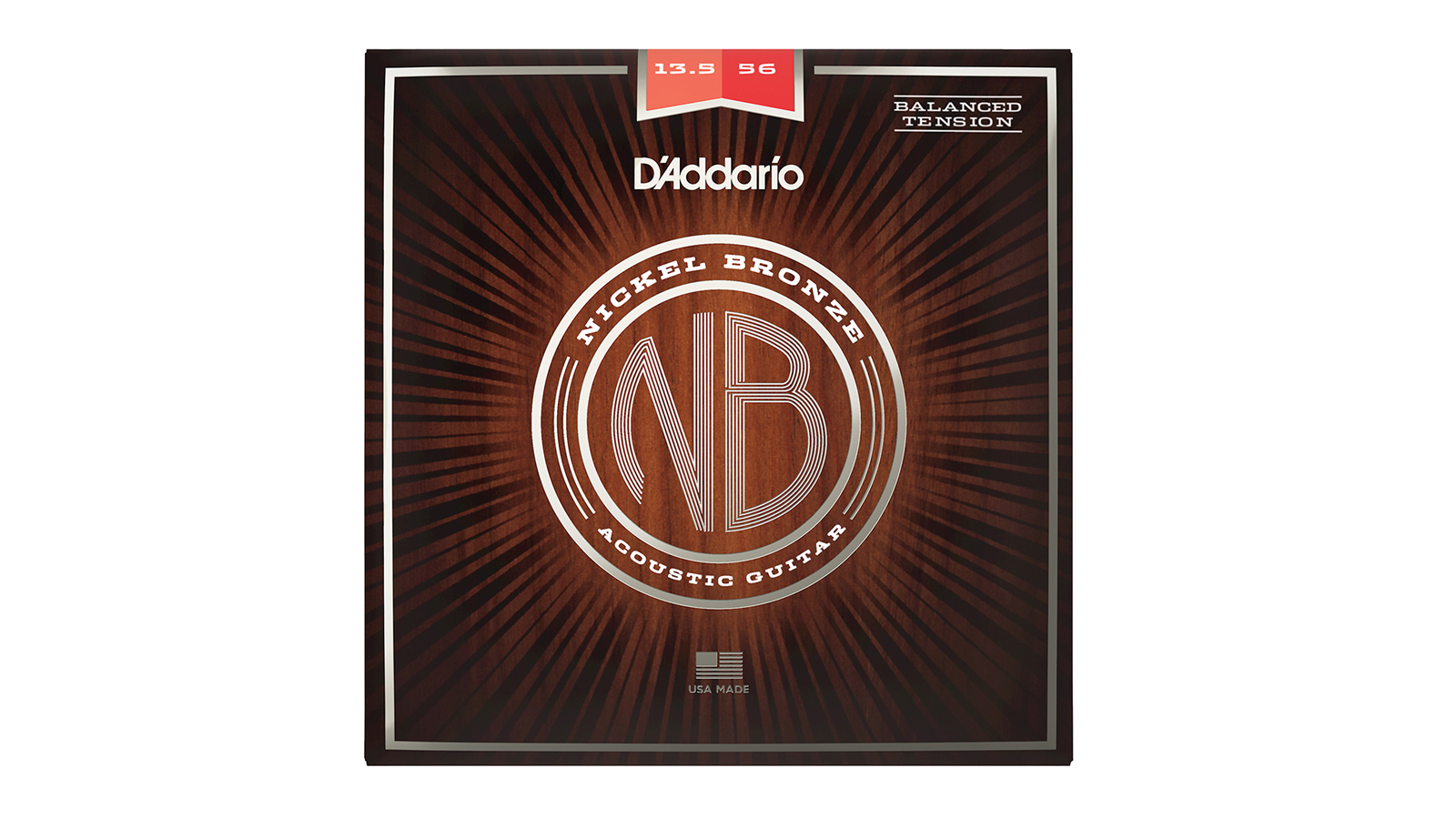
5. D'Addario Nickel Bronze
Our expert review:
Specifications
Reasons to buy
Reasons to avoid
✅ Buy if you regularly play acoustic guitar with others: These strings sit strongly in the mid-range, making you much more noticeable whilst playing with other acoustics.
❌ Avoid if you like a more rounded set of strings. The harmonic overtones are somewhat sacrificed for the mid-range poke here, which means you might not like the sound if you tend to play on your own.
Overview: D’Addario’s Nickel Bronze Acoustic range offers a string that allows you to hear the natural tonality of your guitar and less of the string itself. They work fantastically well for a wide variety of playing styles, whether you are flatpicking and strumming or gently fingerpicking.
Build Quality: Due to the lack of coating, you may find these strings don’t last quite as long as their coated cousins. That said, the price range of these acoustic guitar strings means that you’ll probably end up spending the same amount no matter which you choose. Plus, we have never had any issues with tuning stability, making them a reliable set of strings, particularly if you play live.
Playability: From my experience, nickel bronze strings feel slightly firmer under the fingers than alternatives, which some players might prefer for more controlled picking and strumming. While they don’t have the slickness of coated strings, they offer a direct, tactile connection to the instrument that seasoned players will appreciate. They also respond well to dynamic playing and hold up confidently under heavier picking styles.
Sound: The sound of these strings comes from their nickel plating, which makes them great for playing with other instruments as they sit so well in the mid-range. I found they don’t throw up as many overtones as some of the other strings on the list, giving them a very clear and defined sound.
Best for gigging
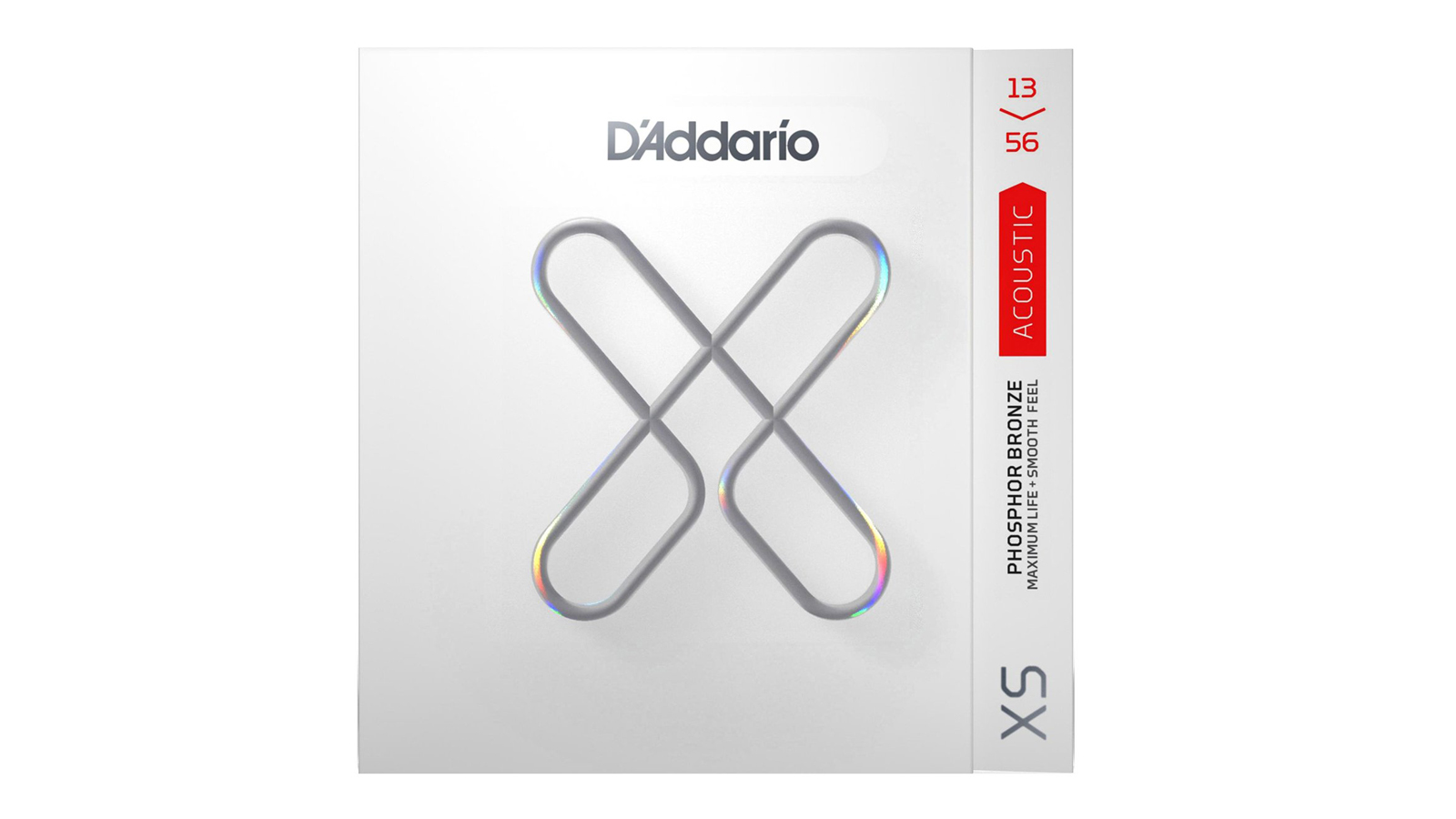
6. D’Addario XS Phosphor Bronze Acoustic Guitar Strings
Our expert review:
Specifications
Reasons to buy
Reasons to avoid
✅ Buy if you need a trusty set for the road: D’Addario is the real deal and the XS range is its most reliable, durable, and strong acoustic strings yet, ideal for taking on the road.
❌ Avoid if you prefer a specific tone: The XS strings are the perfect Goldilocks option tonally, not too bright, not too mellow. If you are chasing something at either end of the spectrum, these might not be for you.
Overview: D’Addario’s XS range marks a fresh step for the company with an innovative polymer and ultra-slim coating for an outstanding playing feel. These strings offer the maximum lifespan of any D’Addario acoustic string thus far, making them a great choice for the gigging acoustic guitarist.
Build Quality: A hex-core construction ensures that your tuning stability is always on point, whilst intonation across the length of the string will never be an issue. The NY steel core gives outstanding durability too, so you’ll be hard pushed to snap one of these.
Playability: D’Addario uses both a polymer coating on the bass strings and a polymer treatment on the trebles. As soon as you play a set of XS strings, it is clear that D’Addario has spent time perfecting the formula; the coating is barely noticeable under the fingers.
Players who dislike the plasticky feel of some coated strings will likely take to XS strings much more quickly. Another bonus: the coating helps reduce finger noise when sliding up and down the neck.
Sound: In terms of tone, they offer an excellent balance between warmth and brightness, with a consistent response across the entire set. Sure, players who prefer extremely bright or very mellow strings might look elsewhere, but for most, the XS tonal profile hits the sweet spot.
More options...
For me, the above string sets should cover the vast majority of acoustic guitar players out there. I do appreciate strings are very personal though, so here are some more options I've tried over the years that are worth looking into if you didn't find what you were looking for above.
Curt Mangan Fusion Matched
Steel core | Phosphor bronze | Uncoated
Curt Mangan is a relative newcomer to the acoustic guitar-string game, but don’t let that put you off trying a set. Curt himself worked at Ernie Ball for many years, so you can rest assured that he has plenty of experience in the industry.
These strings are handmade in the USA to very exacting standards, offering acoustic guitarists an extremely high-quality product. The ability to specify your own custom gauge on the Curt Mangan website also offers the flexibility you can’t get with established brands.
★★★★½
Fender Dura-Tone
Steel core | 80/20 bronze | Dura-Tone coating
Fender needs little introduction when it comes to guitars, but its strings offer just as much quality as its instruments. Coming in at a brilliant price point, Fender Dura-tones offer a great introduction to coated strings for those who’ve never tried them.
They hold their tuning fantastically well with minimal stretching and the tonality is very bright, making them well suited to larger-sized acoustic guitars like dreadnoughts. They’re very measured across the set in terms of tension, so chords feel great and every note rings out clearly.
★★★★½
Rotosound TRU Bronze
Steel core | 80/20 bronze | Uncoated
Rotosound has something of a vintage image thanks to its association with famous acts of the ‘60s like Jimi Hendrix and The Who. But don’t let that fool you into thinking they haven’t kept up with the times. This British brand makes some of the best acoustic guitar strings around.
They include an extra high E string which is a nice touch for new players, who often overtighten strings when changing them for the first time. Despite this inclusion, these strings are still very durable and will stand up well to hard strumming.
★★★★½
D’Addario Phosphor Bronze
Steel core | Phosphor bronze | Uncoated
First released way back in 1974, D’Addario Phosphor Bronze Acoustic Guitar Strings fast became one of the standards of the acoustic guitar world. Nowadays, D’Addario makes an overwhelming variety of acoustic guitar strings, but this is the set that started it all.
They offer a warmer tone with less top end than some of the sets on this list, largely due to the phosphor bronze wind. The ball end of each string is color-coded too, which makes it that much easier to identify which is which when you string your acoustic.
★★★★½
Cleartone EQ Hybrid Metal
Steel core | 80/20 bronze, phosphor bronze, copper bronze | Treated
Cleartone has approached things slightly differently with the EQ Hybrid Metal acoustic strings. Their intention was to create a perfectly balanced acoustic set by using different material wraps across a single set.
Being ‘treated’ instead of coated means there is less material between your fingers and the string. Even so, we found the EQ Hybrid Metal strings to feel very smooth, with barely any finger squeak for an uncoated set.
★★★★☆
Read more: Cleartone strings review
DR Rare Acoustic
Steel core | Phosphor bronze | Uncoated
Many guitar manufacturers have seen the benefit of offering acoustic guitars that play like their electric brethren, but DR Strings has taken that mentality and applied it to acoustic guitar strings.
The low tension feel might be alien to those used to playing acoustic, but if you’re primarily an electric player struggling to adapt, then these strings might well be for you. A different manufacturing process of wrapping these strings is what gives them their easy playability.
★★★★☆
Gibson Acoustic Strings
Steel core | Phosphor bronze | Coated
Gibson has produced some of the most outstanding acoustic guitars in the world with the legendary J-45 and the ever-present Hummingbird. That same diligence clearly applies to these incredibly well-made strings.
Developed by Gibson’s master luthiers, these strings feel thicker than some of the others on this list, albeit only slightly. With that extra thickness, however, there is a definite benefit in sustain, and the clarity of the sound speaks for itself when you start strumming. The warm and rich sound of these strings works fantastically well with dreadnought and jumbo-sized acoustic guitars in particular.
★★★★☆
How to choose
There are a few things to consider when purchasing a set of acoustic guitar strings. Whether you are a beginner, want to experiment with a different type of string, or are simply after a refresher, I have put together the key points you should consider when purchasing your next set. I have taken into consideration my decade worth of experience helping players on a daily basis select strings whilst working in a guitar store, and this is the process I go through each time.
1. Gauge
You can trust Guitar Player.
Firstly, let’s think about what gauge you want to go for. String gauge refers to how thick a guitar string is and is measured to the thousandth of an inch. You will often hear players talk about a set of “12s” or “11s”; this refers to the thinnest string in the pack.
Most acoustic guitars come out of the factory with 12s (0.012”–0.054”), so if you are unsure what gauge to choose, this is likely your best starting point. A 12-gauge set will work your guitar top well, project plenty of volume, and offer a pleasing amount of sustain.
If you would like something a little lighter, try a set of 11s (0.011”–0.052”), which will feel softer under the fingers and require less pressure to fret a note. This makes 11s a good choice for guitarists more familiar with electric guitars or those who prefer an easier playing experience. You may notice a slight drop in volume and projection compared to 12s, though not as much as you would with 10s (0.010”–0.047”), which are noticeably lighter.
For maximum projection and resonance, you might consider a set of 13s (0.013”–0.056”). Martin is one of the few brands whose guitars often come factory-strung with 13s, and they do a great job of working the guitar’s top. That said, the added tension comes with some risk: heavier strings can put extra strain on the guitar’s top over time. In humid climates or on older and vintage guitars, this could eventually cause the soundboard to rise or go “belly up”. So, while 13s offer great tone, they are not suitable for every instrument.
2. Material
Once you have decided on the gauge, let’s decide on the material. Most acoustic guitar strings will have a steel core, so you don’t have to worry too much about that. The primary difference in material is used for the strings’ winding, or wrapping. Each has a different tonal characteristic and over time, you will develop a taste of your own.
The most popular materials are as follows:
- 80/20 bronze: This is an alloy made from 80% copper and 20% zinc. 80/20 bronze tends to sit on the brighter and zingier side of the tonal spectrum and will suit players who like a zippier attack. If you prefer things on the mellow side, you are better off with something like phosphor bronze.
- Phosphor bronze: If you like warm, rich and slightly mellower tones, phosphor bronze is the one for you. There is less brightness with this material and it is typically well-balanced.
- Nickel bronze: This material is ideal for vintage tone lovers. Nickel bronze strings are clear, articulate and sit prominently in the mid-range. I would say they are much less prominent in the upper registers, and to some, they can feel a bit dull.
3. Coated, uncoated or treated
Lastly, you will need to decide whether to go for coated, uncoated, or treated strings. Most strings will be uncoated unless specified otherwise. Coated strings were introduced by Elixir in the early ’90s to extend string life. The coating refers to a very thin, usually plastic, layer around the winding. This coating acts as a physical barrier against corrosion, primarily from oxygen and the acidity in your fingers.
Treated strings are slightly different. Instead of using a visible coating, these strings undergo a process during manufacturing – often at the molecular level – to resist corrosion and oxidation. Each brand has its own formula or technique for treating strings.
Lastly, uncoated strings are exactly what they sound like: they come straight from the factory without any additional steps to improve longevity. While they may not last as long, many players prefer their natural feel and tone.
FAQs
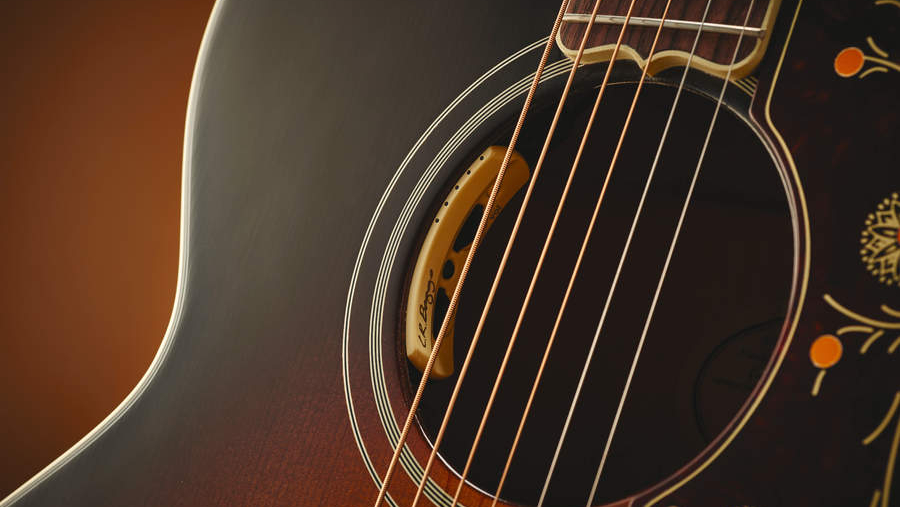
Can electric guitar strings be used on acoustic?
Using a spare set of electric guitar strings on your acoustic might be tempting, but it is not the best idea. While you are unlikely to cause any damage, electric strings are not designed for acoustic guitars and won’t sound particularly good. Electric strings are generally thinner and have lower tension, which means they won’t work the acoustic guitar’s body as effectively. The result is a noticeable lack of projection and resonance, and they will do a poorer job of bringing out the natural harmonics of your guitar.
What gauge strings are best for acoustic guitar?
Generally speaking, the best gauge for an acoustic guitar is down to preference. Personally, I prefer a set of 12s (0.012”-0.054”) as their projection is hard to beat, plus, since I am in a humid environment, it puts less tension on my guitar’s top. Most brands tend to put 12s on their acoustic out of the factory, so it is a safe bet if you are unsure what gauge to go for. If you want a slightly lighter touch, then 11s (0.011”-0.052”) are very popular. You do sacrifice some projection with a lighter gauge but if speed, string bending or less finger pressure exerted is your priority, then 11s are a good choice.
How often should acoustic guitar strings be changed?
Changing strings is something you should do regularly, but how often depends on your playing habits, environment, and string type. For example, coated strings typically last one to two months longer than uncoated ones. How quickly your strings degrade can also come down to how acidic your sweat is. More acidic sweat will corrode both the string and any protective coating much faster than less acidic sweat, however grim that may sound.
A good rule of thumb: if your strings have lost their zing and the trebles look dull, dark, or blackened, it is time for a change. Run your fingers along the underside of the strings; if you are left with a line of dirt, it is definitely time to swap them out.
What strings are best for finger picking?
Fingerpickers tend to prefer lighter gauges while doing their thing. Gauge 11s – and sometimes even 10s – are the go-to choice for a few reasons. The lighter tension feels less abrasive on your picking fingers than 12s or 13s, and it also helps reduce fatigue. Sure, you will still build up calluses like you do on your fretting hand, but overall, lighter gauges are more comfortable for fingerstyle playing.
Material-wise, phosphor bronze is a popular option, as it offers a strong midrange presence and a well-balanced tone. That said, string material is ultimately down to personal taste, so trust your ears and go with what sounds best to you.
What are the brightest-sounding acoustic guitar strings?
Out of all the materials used to make acoustic guitar strings, 80/20 bronze is considered the brightest of the most popular options. It has a pronounced zing, fast attack, and emphasizes the higher frequencies more than other materials. If you pair 80/20 bronze with a lighter gauge, you will get a very bright, articulate string that cuts through and grabs your attention right away.
Do thicker acoustic guitar strings sound better?
Some guitarists will tell you that the thicker the string, the better the sound and there is some truth to that. Thicker strings have more tension, which typically results in greater volume, better projection, and longer sustain. Heavier gauges work the guitar’s top more noticeably, especially in the lower bout, often leading to a fuller, more pronounced low end.
However, they can be more physically demanding to play. If you are not used to the added tension, thicker strings may feel stiffer and harder to fret. As always, tone is subjective; if the benefits of thicker strings appeal to you, they are definitely worth trying out.
Key terms
If you're confused by any of the technical terms being bandied around in this guide then this is the section for you. Here, I've outlined all the most common terminology and provided a brief, succinct explanation for you.
- 80/20 Bronze: This is a metallic alloy that refers to the type of wrapping a particular string uses. This string wrap consists of 80% copper and 20% zinc.
- Coated Strings: This is a type of string that uses a plastic polymer as a ‘coating’ around the wrapping as a protective barrier to reduce corrosion.
- Gauge: This is the thickness of a guitar string, measured to the thousandths of an inch. The higher the number, the thicker the string.
- Nickel Bronze: Like 80/20 bronze, this is a metallic alloy used for string wrapping and consists of nickel-plating and phosphor bronze.
- Nylon Strings: Unlike steel strings, nylon strings are typically used for classical or flamenco guitar and have a softer nylon core. Tonally, they are much more gentle and mellow.
- Phosphor Bronze: One of the most popular, phosphor bronze strings comprise a copper, tin, and phosphorus alloy wrapped around a steel core.
- Plain Steel: Most commonly, whilst acoustic strings have an alloy wrap, their core tends to be plain steel. Typically, this is tempered high-carbon steel.
- Silk and Steel: This is a string that is constructed with a layer of silk – or a similar synthetic material – around the core and between the winding. They have a lower tension and sound more gentle.
- String Set: A string set consists of all 6 individual strings that you need to fully restring an acoustic guitar.
- Tension: Slightly different from gauge, tension refers to the tightness of the strings. Higher tension strings will feel stiffer and will be harder to bend.
- Uncoated Strings: The opposite of coated, uncoated strings leave the outer metallic string winding exposed to the elements and have no protective layer.
- Wound String: Most acoustic strings will be wound and it is a string that has a metallic core wire with another metallic wire wrapped around the core. Typically, for acoustic strings, the winding is round, but it can be flat in some instances.
How we test
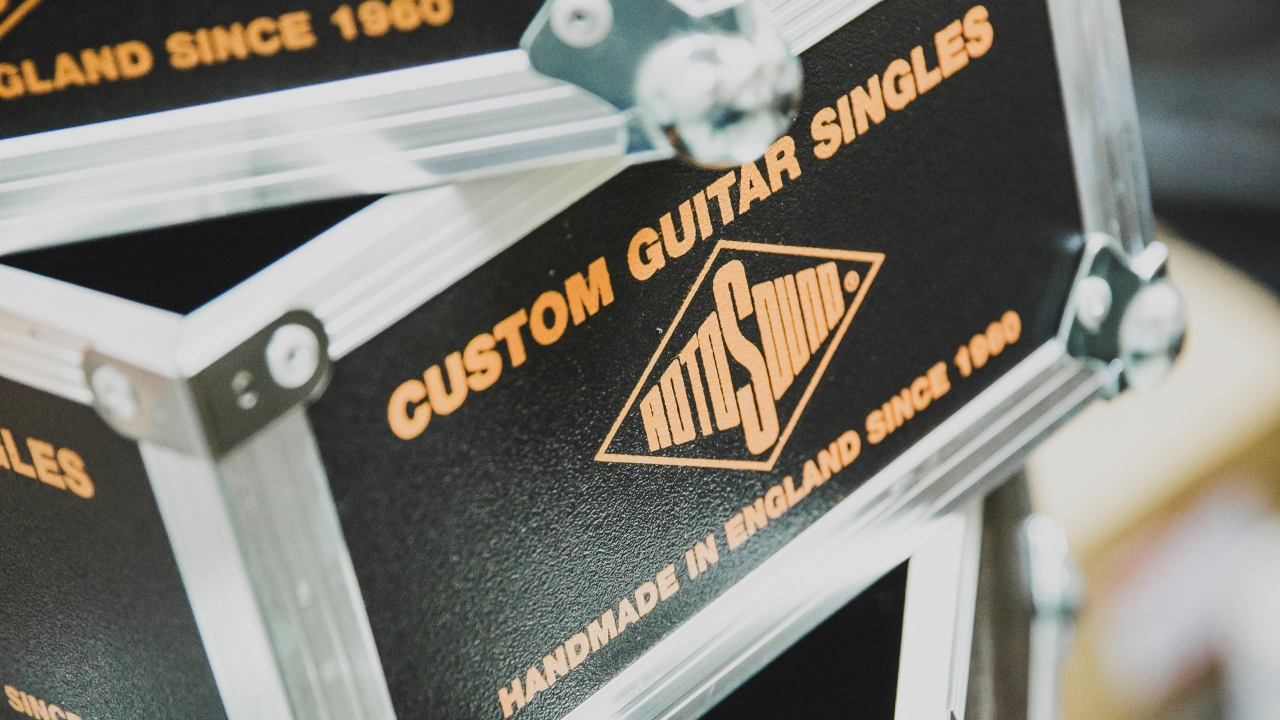
Here at Guitar Player, we are experts in our field, with many years of playing and product testing between us. We live and breathe everything guitar-related, and we draw on this knowledge and experience of using products in live, recording, and rehearsal scenarios when selecting the products for our guides.
When choosing what we believe to be the best acoustic guitar strings available right now, we combine our hands-on experience, user reviews, and testimonies and engage in lengthy discussions with our editorial colleagues to reach a consensus about the top products in any given category.
First and foremost, we are musicians, and we want other players to find the right product for them. So we take into careful consideration everything from budget to feature set, ease of use, and durability to come up with a list of what we can safely say are the best acoustic guitar strings on the market right now.
Read more on how we test gear and services at Guitar Player.
Related buying guides
- Unplug with the best acoustic guitars under $1,000
- Save some cash with the best acoustic guitars under $500
- The best guitar capos for acoustic and electric guitar
- Harness the dynamic warmth of the best classical guitars
- Best 3/4 acoustic guitars: Diminutive acoustics with substantial tone
All the latest guitar news, interviews, lessons, reviews, deals and more, direct to your inbox!

Matt is a Junior Deals Writer here at Guitar Player. He regularly tests and reviews music gear with a focus on guitars, amps, pedals, modelers, and pretty much anything else guitar-related. Matt worked in music retail for 5 years at Dawsons Music and Northwest Guitars and has written for many music sites, including MusicRadar, Guitar World, Guitar.com, Ultimate Guitar, and Thomann’s t.blog. When not writing for Guitar Player, you'll find him making a racket with northern noise punks Never Better.
